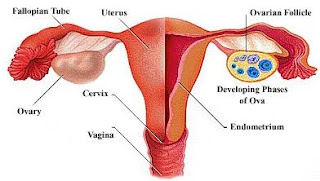VAGINAL INFECTIONS YOU NEED TO KNOW ABOUT
 |
| Royalty Blog |
Vaginal infections can cause unbearable pains and discomfort if left without adequate treatment, they may lead to complications that can adversely affect a person’s health.
The following sections will look at some common causes of vaginal infections, as well as their specific symptoms and some treatment options.
YEAST INFECTIONS:
Vaginal yeast infections are a result of the fungus called Candida, typically Candida albicans.
Yeast infections occur when the Candida species penetrate the mucosal lining of the vagina, resulting in an inflammatory response.
SYMPTOMS:
Some symptoms of a yeast infection include:
1) Irritation, itching, and burning in and around the vagina
2) Thick, sticky, white discharge
3) Swelling and flushing around the vagina
4)Soreness,rash and redness
Some people may experience a worsening of symptoms just before a menstrual period.
TREATMENT:
Because yeast infections occur due to a fungus, you can either take an antifungal medication orally or apply a cream to the inside of the vagina.
BACTERIALINFECTIONS
Some bacterial infections that affect the vagina include:
BACTERIAL VAGINOSIS:
These occurs when there is an overgrowth of the bacteria that are naturally present in the vagina. This is the result of a decrease in the bacteria lactobacilli in the vagina.
SYMPTOMS:
1) Thin gray or white discharge
2) Fishy-smelling odor from the vagina
3) Thin or watery discharge
4) Burning sensation while urinating
5) Pains during sexual intercourse
6) Itching of the vulva
TREATMENT:
Usually Clindamycin or Metronidazole is prescribed for treatment of BV.
CHLAMYDIA AND GONORRHEA:
Other bacterial infections, such as chlamydia and gonorrhea, are sexually transmitted infections (STIs).
SYMPTOMS:
1) Abnormal discoloured discharge from the penis and vagina
2) Unusual Bleeding
3) Burning sensation during urination
4) Pain during sexual intercourse
Symptoms of gonorrhea include:
1) Vaginal discharges green, white, or yellow in colour
2) Pelvic pains
3) Burning sensation while urinating
4) Swelling and pain of the labia
TREATMENT:
Both of these bacterial infections can be treated with antibiotics, no sex until a week after medication.
VIRAL INFECTIONS:
A person can contract these viruses through sexual intercourse or by into skin-to-skin contact with a affected persons.
Genital herpes outbreaks usually look like a cluster of itchy or painful blisters filled with fluid. They may be different sizes and appear in different places. The blisters break or turn into sores that bleed or ooze a whitish fluid.
GENITAL HERPES:
Symptoms of genital herpes include:
1) Painful blisters or sores on the genitals
2) Burning or pain while urinating
3) Swelling of lymph nodes
4) Swelling of the vulva
5) Fever and headaches
6) Blisters on face or lips


Comments
Post a Comment